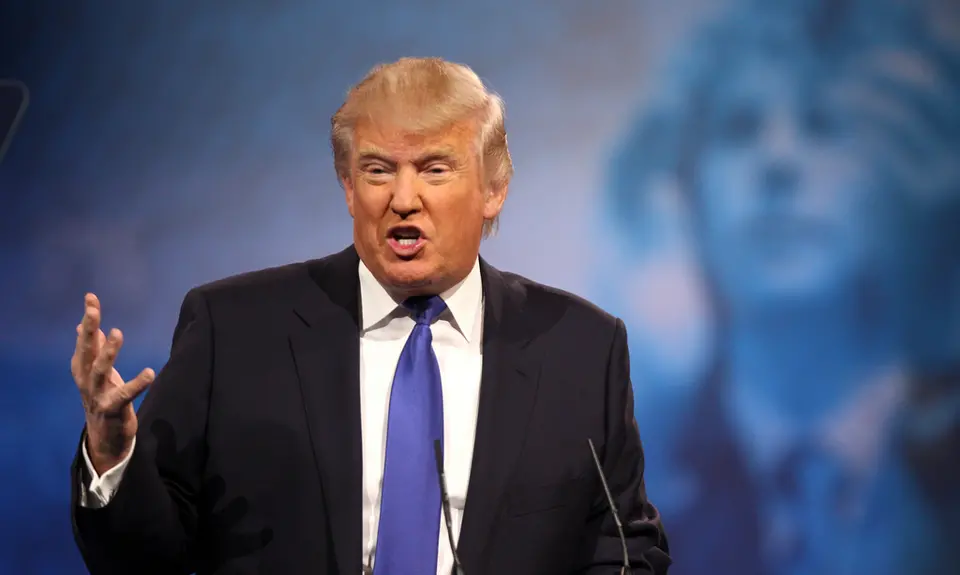If there's one way to describe the first few months of the Trump administration, perhaps, to put it mildly, it's this: out of step with the American people.
President Trump began by assembling a radical group of right-wing ideologues on his leadership team, including housing secretary Ben Carson, manifestly unqualified with little record to speak of on housing issues; education secretary Betsy DeVos, who has spent her political life trying to dismantle public education; energy secretary Rick Perry, who once pledged to eliminate the department that he now leads; EPA administrator Scott Pruitt, who has not only denied climate change and openly demonstrated anti-EPA hostility but has also been plagued by serious concerns about ethics and lack of transparency; and attorney general Jeff Sessions, whose civil rights record has only gotten worse in the thirty years since he was rejected as too extreme for a federal judgeship.
Then Trump brought his political agenda to the Supreme Court when he nominated Neil Gorsuch to fill the seat left vacant by the death of Justice Antonin Scalia. Trump cemented that choice with the assistance of Senate Majority Leader Mitch McConnell, who invoked the nuclear option to secure confirmation. Gorsuch has a history of finding ways to put corporations first and real people with real lives second. Take for example Alphonse Maddin, a trucker who was forced to abandon his load in order to save his own life, only to be fired and have that firing upheld by Gorsuch. Gorsuch also has a radical stance on the Chevron doctrine, an important legal rule regarding the actions of federal agencies that supports their ability to protect health, safety, the environment, and other key subjects. Overall, Gorsuch's troubling record calls into question his ability to be fair and guided by the Constitution, rather than his own political agenda.
While all of this was going on, Trump set out to repeal and replace the Affordable Care Act—prioritizing politics over people's lives in a quixotic quest to undermine President Obama's signature legislative achievement. Then Trump attacked people of faith with not one but two discriminatory bans targeting Muslims that judges have ruled unconstitutional; those bans are just two of the two dozen executive orders that Trump has signed so far. Trump has also been signing off on Congressional Review Act resolutions passed by Congress to roll back certain Obama administration regulations; he currently has on his desk a Title X rollback that will have serious, damaging consequences for family planning. The list goes on of the many ways in which Trump and his administration have forsaken Americans' rights, values, and lives in just his first 100 days in office.
Now another big Trump assault looms large on the horizon, one that will impact everyday Americans in every facet of their lives: the federal budget. The federal government has been operating on temporary funding since the current fiscal year began back on October 1, and the clock runs out on April 28. Congress must pass and Trump must sign new funding or pass another extension or the government will shut down until an agreement can be reached. Senators and House members have only four working days to get something to Trump’s desk after they return from their spring recess. Once complete, work must begin on next year's funding.
Here at People For the American Way we have been working with the Clean Budget Coalition to keep the federal budget clean of harmful policy riders that undermine our rights, our health, and our democracy. Riders are ideological provisions that get attached to spending bills and other must-pass legislation, not because they further our spending goals or meet Americans' basic needs but because they could not become law on their own merits. These under-handed maneuvers have been used to roll back Wall Street reform, block clean air and water protections, and undermine women’s health. They do not belong in government funding bills—not in the funding that must pass this month, not in next year's funding, not ever.
Not only is PFAW on the lookout for Trump policies that ride along with the budget, we're also looking at the budget itself to see how many of his misguided funding priorities are taken up by the GOP Congress. What's on the Trump budget chopping block? To name just a few: arts and humanities, anti-poverty and homelessness programs, affordable housing, and Meals on Wheels, maybe even the National Domestic Violence Hotline. What does Trump want to fund instead? A border wall that most Americans have rejected. Voucher programs that represent ineffective and damaging education policy. Defense spending that breaks the 2013 spending caps with a $54 billion (10 percent) increase.
Since budgeting and taxes go hand in hand, though the latest details are murky, we also expect a Trump tax plan rigged in favor of corporations and the rich. We already saw in the ill-fated GOP healthcare bill a tax giveaway for insurance companies.
We'll keep you updated as the next few weeks, and the rest of the budget year, unfold.
